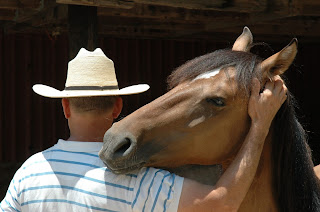Book Challenge -- Days 17 & 18
Day 17/20 -- Dune Frank Herbert 1965
Well, for day 17, let’s delve into the opus Dune by Frank Herbert. This has been on my list since I accepted the first 10 challenge, but I keep avoiding it, not sure how to go about discussing its influence. I won’t spend a lot of time on the plot because if you haven’t read it by now, you either don’t care or have been living under a rock. I’m not sure seeing the movies or miniseries counts, as they were all, at least in part, disasters. The David Lynch film (1984) is a feast for the eyes and follows the novel fairly well, but Dune seems to be one of those books that just doesn’t translate to the screen well.
As far as when I read this tome, I imagine it was probably senior year in high school or maybe even my first year at university, which is pushing the “childhood” filter for this challenge. But the challenge was for only 10 books, too, so why stick to the rules? I estimate the period in which I read Herbert’s first book in this series considering that when it was published, I was only 14 and may have found everything going on in the book a bit much to track. It was still a difficult read, and I have since re-read it at least twice. Each time, I think I understand some of it a bit better. With its combined themes
 |
| 1984 movie art |
Herbert wrote five sequels to Dune, and his son, Brian Herbert, with Kevin J. Anderson, have written a series of sequels and prequels since 1999. Frank Herbert died in 1986 at 65.
In a manner much different, Dune influenced my ideas about environmentalism and ecology much as Silent Spring had done. It was also a clear illustration of how indigenous goals for one’s home can differ vastly from an occupying force’s goals.
 |
| 2020 Movie art |
Another movie will be released in December this year, and I hope it’s done well.
Day 18/20 – The Collected Poems: 1934-1952, Dylan Thomas
If I’m going to discuss books I read in my youth that had significant influence, I should include a book of poems because along with science fiction and animals, something that has taken up a great deal of my time is poetry. I am unsure how I “found” Dylan Thomas, although I suspect it was through school. I remember in high school, perhaps in my senior year, the result of one assignment was to write a biography. I wrote my biography on Thomas, so he must have made an impression on me. I recall, writing about his many affairs and quoting Thomas as telling someone, “They are all Caitlin [his wife] anyway.” On my graded paper, English teacher Sister Jonathan wrote, “I’ll be she didn’t think so!”
Perhaps I wrote about Dylan Thomas because I thought his chaotic life would horrify the adults around me. Perhaps he appealed to my teenage image of the drunken, man poet. But finally, it was his poetry that convinced me. We probably read “Do not go gentle into that goodnight” in high school English class. But I was intrigued by “The Force That Though the Green Fuse Drives the Flower,” “A Refusal To Mourn The Death, By Fire, Of A Child In London,” “And Death Shall Have No Dominion,” “In My Craft or Sullen Art,” “The Hunchback in the Park,” and many others. Some of these are from the 1946 book, Deaths and Entrances, critically acclaimed and said to have established him as a rising poet, but since Thomas died when I was a toddler (1953), I went straight for the collection.
From “Refusal”:
Deep with the first dead lies London’s daughter,
Robed in the long friends,
The grains beyond age, the dark veins of her mother,
Secret by the unmourning water
Of the riding Thames.
After the first death, there is no other.
Thomas’s poems don’t lend themselves to excerpts. Often one idea is threaded through
 |
| Dylan Thomas -- Photographer: Lee Miller, 1946 |
https://youtu.be/22IT1LWx6tk (sorry about the ad)
I wouldn’t say that Thomas is always an accessible poet. His word-rich verses often defy analysis, and when that occurs – with any poem – my first instinct is to just let the words wash over me to try to get a sense of the feeling, the emotions, the sounds the words make. You can’t do that with prose.
When I arrived at the University of Northern Iowa in 1969-1970, my delight in Dylan Thomas’s poetry was so obvious the a good friend bought me a copy of Collected Poems, one of my few books to have survived our house fire.



Comments